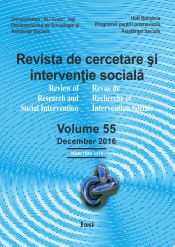FAMILY IMPACT OF CARE AND RESPITE SERVICE: LIFE EXPERIENCES OF MOTHERS OF ADULT CHILDREN WITH INTELLECTUAL DISABILITY AND MENTAL DISORDERS
FAMILY IMPACT OF CARE AND RESPITE SERVICE: LIFE EXPERIENCES OF MOTHERS OF ADULT CHILDREN WITH INTELLECTUAL DISABILITY AND MENTAL DISORDERS
Author(s): Marcia Irazabal, Crescencia Pastor, Mari Cruz MolinaSubject(s): Health and medicine and law, Family and social welfare
Published by: Expert Projects Publishing
Keywords: intellectual disability; mental health; family impact; respite care; qualitative study; families;
Summary/Abstract: The present study was designed to investigate the impact on families of care as perceived by the main carers (mothers) of adult children with intellectual disability and mental disorders, and to learn about the experiences and opinions concerning the respite service of the participants in the study. The methodological focus was qualitative, based on an exploratory study. Four participants were interviewed in depth. Analysis of the content was based on the dimensions of family impact of care and respite service, and it was carried out with Atlas.ti software. The most relevant results regarding the family impact of care indicate a negative impact upon learning of the disability, giving rise to a situation of family crisis and a concomitant grieving process. Concerning the perception of care the testimony given emphasizes overprotection, mutual dependency, the feeling of overload, and concern for the future, as well as feelings of pleasure and gratitude. Areas shown to be lacking include space for oneself, as well as the emotional, psychological, and physical domains. The respite service is seen to offer relief although it also induces feelings of separation and guilt. The main conclusions highlight; the need for understanding the family and the intellectual disability as complex phenomena, the existence of a double dimension in relation to the impact of care and the respite service as a necessary support. The results of this study may serve as a guide to future research in this area.
Journal: Revista de Cercetare şi Intervenţie Socială
- Issue Year: 2016
- Issue No: 55
- Page Range: 7-18
- Page Count: 13
- Language: English

